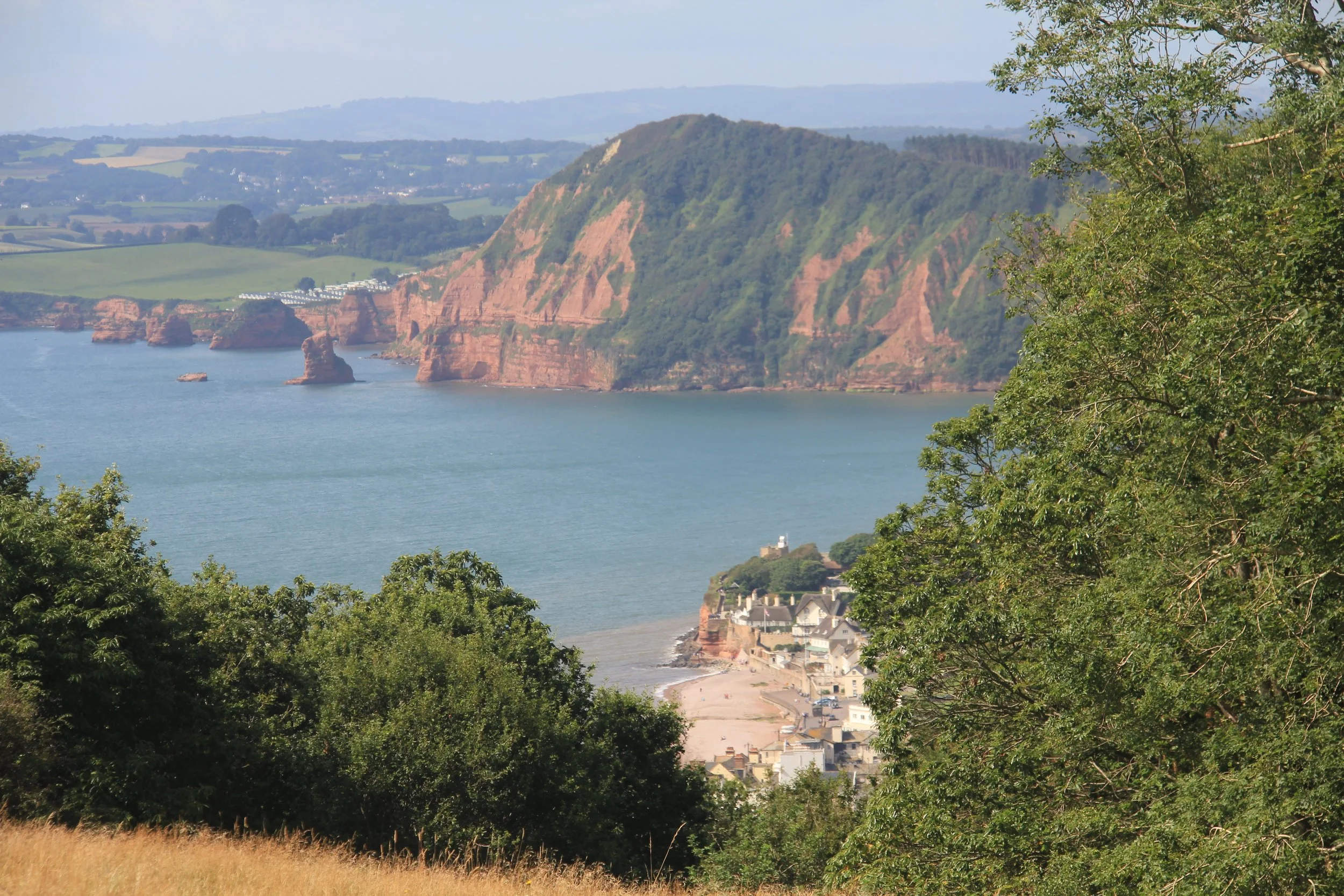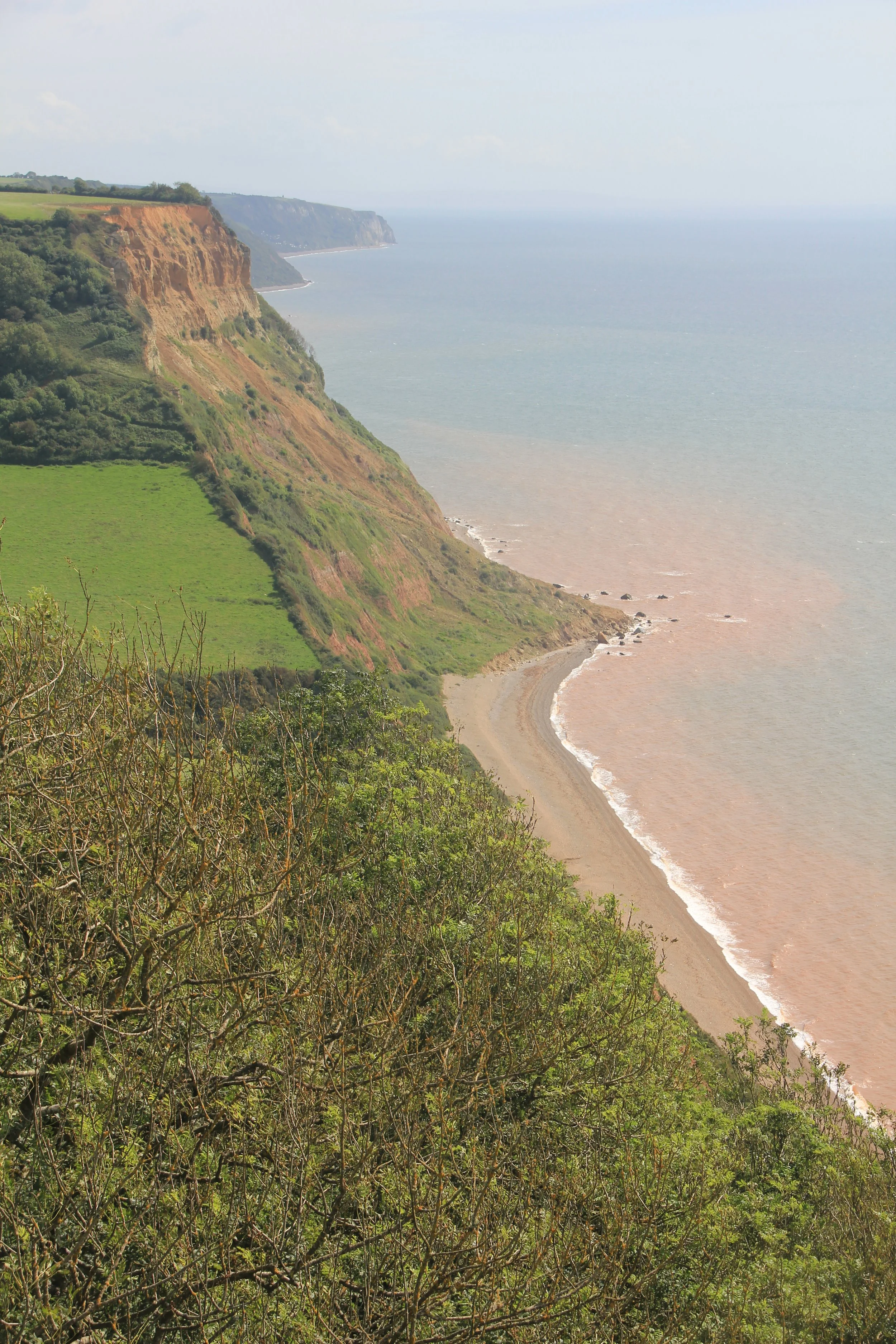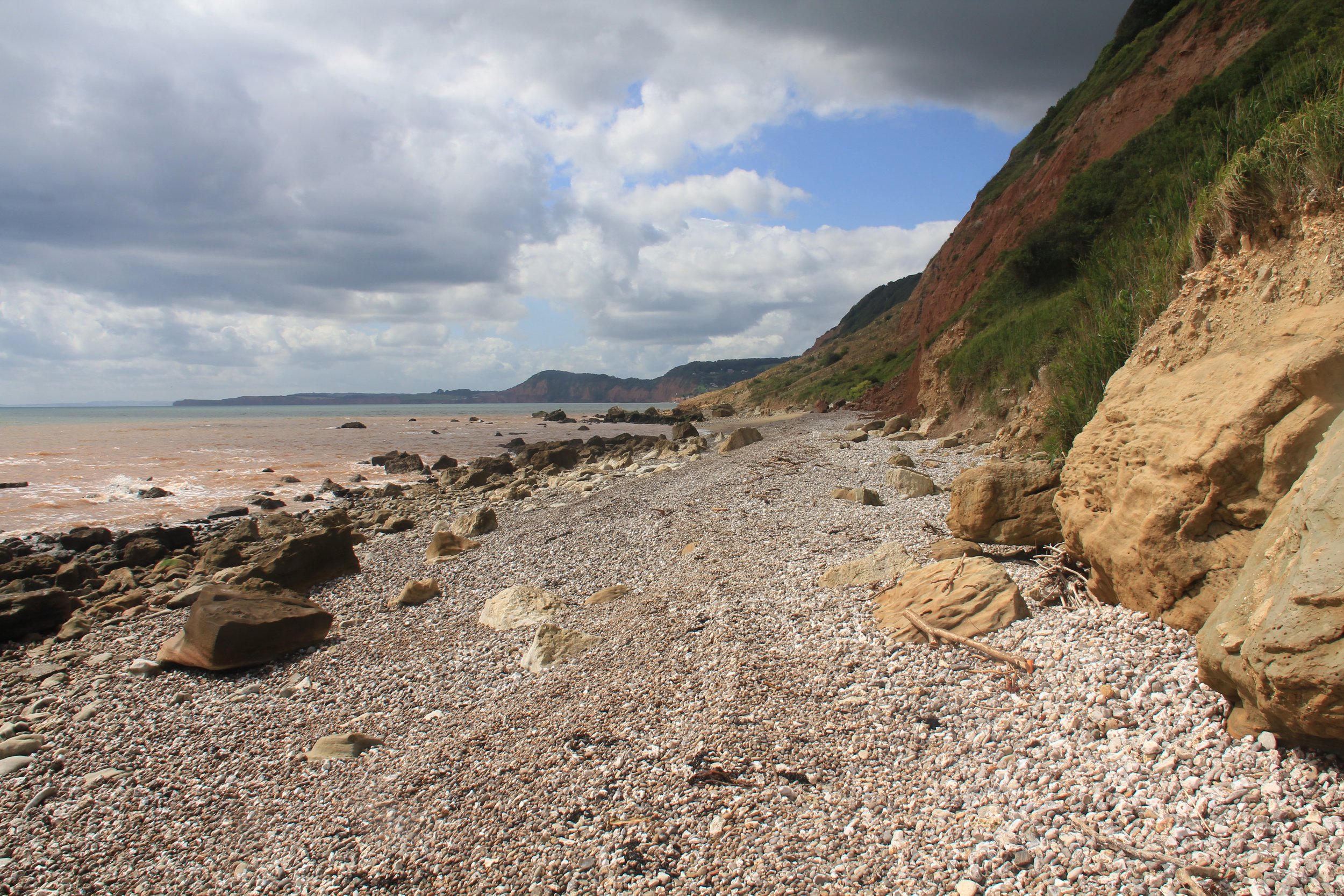East Devon's Secret Coast - Salcombe Regis Mouth
Having stayed at the wonderful Victoria Hotel in Sidmouth recently, we enjoyed a couple of fantastic local walks. Here’s one to the east of town…
Sidmouth from Salcombe Regis Mouth
Each time I embark on one of these hikes the West Country seems to shrink. Slowly, gradually, an enormous mental jig-saw puzzle is falling into place piece by piece.
View of Sidmouth from the east
Distant hills that were once nothing more than an amorphous horizon are now old friends which have been tramped, researched and written about. Great vales and vistas weave between the uplands and each contains a half-dozen hikes between river-source and sea.
From one hill you see a neighbouring plateau; a valley curves north or south to meet another; a bay is terminated by a headland that you have spied before from far away....
Salcombe Regis Mouth beach
There comes a time when you begin to realise the linkage of it all. Your perception of the peninsula then encompasses a single sense of place, regardless of county divides.
But there are a few exceptions to this rule. My own beloved West Somerset is one - sealed from the rest of the world by its great ring of hills and its Bristol Channel shore, the area seems to occupy a magical sphere of its own.
East Devon, beyond High Peak is another. The big hills that curve east from that mighty brow consign this region to an altogether different sphere of influence. From Sidmouth to Seaton and beyond, you are somehow rooted in Wessex rather than the West.
Chalk and flint, cretaceous greensand and red triassic Keuper marl - they are the new and different bare bones that make this place what it is. Geology is everything. It shapes hills and valleys just as surely as it can alter the taste of cheese or wine.
On this hike we will see the last, westernmost outcrops of Britain's chalk. Big bold, dramatic outcrops they are too. Carved by wind and rain, the tall white ramparts that are Rempstone Rocks play host to kestrel and raven and offer some of the best views east to Portland Bill to be found anywhere along the coast.
Our walk begins at Salcombe Hill high above Sidmouth. You can get to it from the main A3052 Exeter to Dorchester road. From here I followed the upper contours of the steep valley to the east so I could take a look at Salcombe Regis is a pretty little village boasting a fine old church. From modest beginnings hereabouts, this valley extends itself into a broad and rather spectacular 'V' that is terminated abruptly by the workings of the sea.
Down it we walked - at first on a made-up road, and then through the yard at Coombe Wood Farm to reach the fields beyond. Basically you are in the business of linking up with the Coast Path and at the farm you have a choice of routes: one that goes straight down towards the sea. or the one you'll see ascending to the left.
We popped down to the beach at Salcombe Mouth and then paid for it by having to climb the steep contours to over Dunscombe Cliff. At the top you can admire the fine coastal views before heading off east towards a fascinating area known as Dunscombe Humps.
Coastal erosion at Salcombe Regis Mouth
The National Trust, which owns this area, tells me this was the place where chalk was once burnt to make lime, and that piles of discarded flints are what remains from the process which ceased in 1906. This surprised me as the humps looked as if they adorned this steep coast for a lot longer than that.
In one place there is a sort of secret chasm. We squeezed through the thicket and found ourselves in a church-sized hole which would have been a smuggler's dream. A few brambles tied across the mouth would keep your booty safe from the excise-man forever and a day...
Slightly alarming notice at Salcombe Regis Mouth
Suddenly the humps give way to an abyss. A very handsome and decorative abyss - but an abyss nevertheless, where terra-firm ceases to exist in a most abrupt and airy of ways. We have arrived at the aforementioned Rempstone Rocks and all I can say here - apart from mentioning their chalky, westerly claim to fame in the record books - is watch your step. At 520 feet they are the highest cliffs on the South Devon Coast and the Trust leaflet says: "being composed of soft material, are notoriously liable to slump and slip."
It adds, "The visitor will spot a number of ledges or platforms on the cliff slope, some of them occupied by summer bungalows or caravans."
Lonely beaches east of Sidmouth
Indeed, our hike now plunges us into the wooded and hidden demesne of a caravan park, but first allow me to mention broad beans - not only because I am inordinately fond of these green, toothsome wonders, but because they (along with spuds and sundry other veg) were once grown on these south-facing, frost-free platforms - or plats as they were known.
Seaweed was collected from the beach far below at Weston Mouth and brought up here by donkey. Children helped and the whole sea-facing area between here and Branscombe was a sort of salty garden before mass-food production consigned such endeavours to the great compost bin called quantity-over-quality.
The short, dull afternoon turned dark and so we cut Weston Mouth from our tour and scuttled through the caravan park inland to the lane where we turned left for the brief half-mile walk back to Salcombe Regis. Another, rather obscure but beautiful, piece of the Westcountry jigsaw found and placed neatly into the great peninsula puzzle.
Fact File
Basic Hike
From Salcombe Regis just east of Sidmouth, to Coast Path, then east before turning inland to Dunscombe and returning along the lane.
Recommended Map: Ordnance Survey Explorer 115.
Distance and going: Just over four miles, steep and muddy in one or two places.
Lock on to the Lockyer
The Norman Lockyer Observatory is located just metres from the beginning of this walk. It is both an observatory and home to an active amateur astronomical society. Run by volunteers, it isn’t always open - but pay it a visit by checking out the opening times at http://normanlockyer.com
Sightseeing at Sidmouth
Far below the beginning of the walk to the west is Sidmouth - one of the most charming coastal resorts on the entire West Country littoral. Do pop down to town for refreshments - there are plenty of excellent watering holes in town.
Watch out at Weston Mouth
I’d recommend plunging down the wooded valley to Weston Mouth if you have the time. But one slight warning - if you go on a warmish day you might be confronted by bare bodies on the beach - it is a well known haunt for naturists.
















